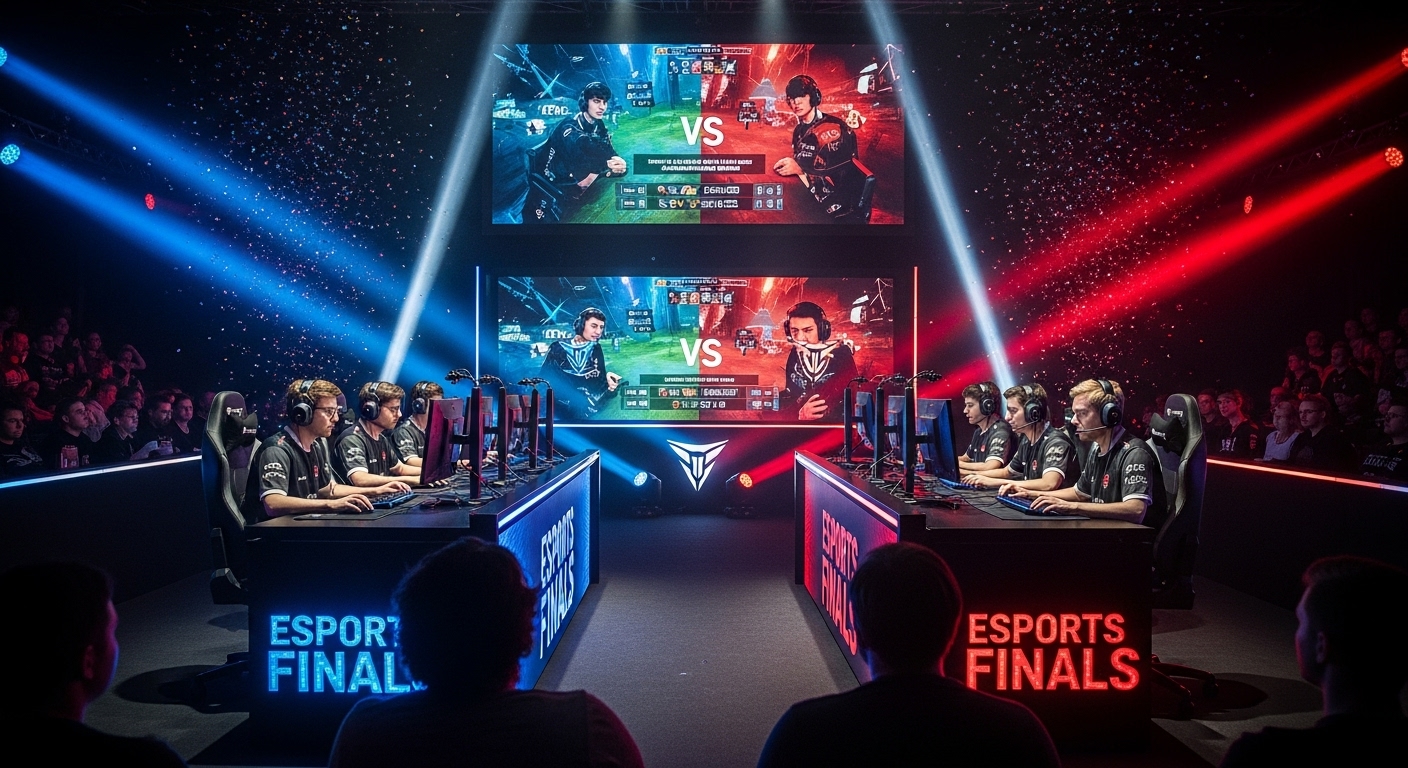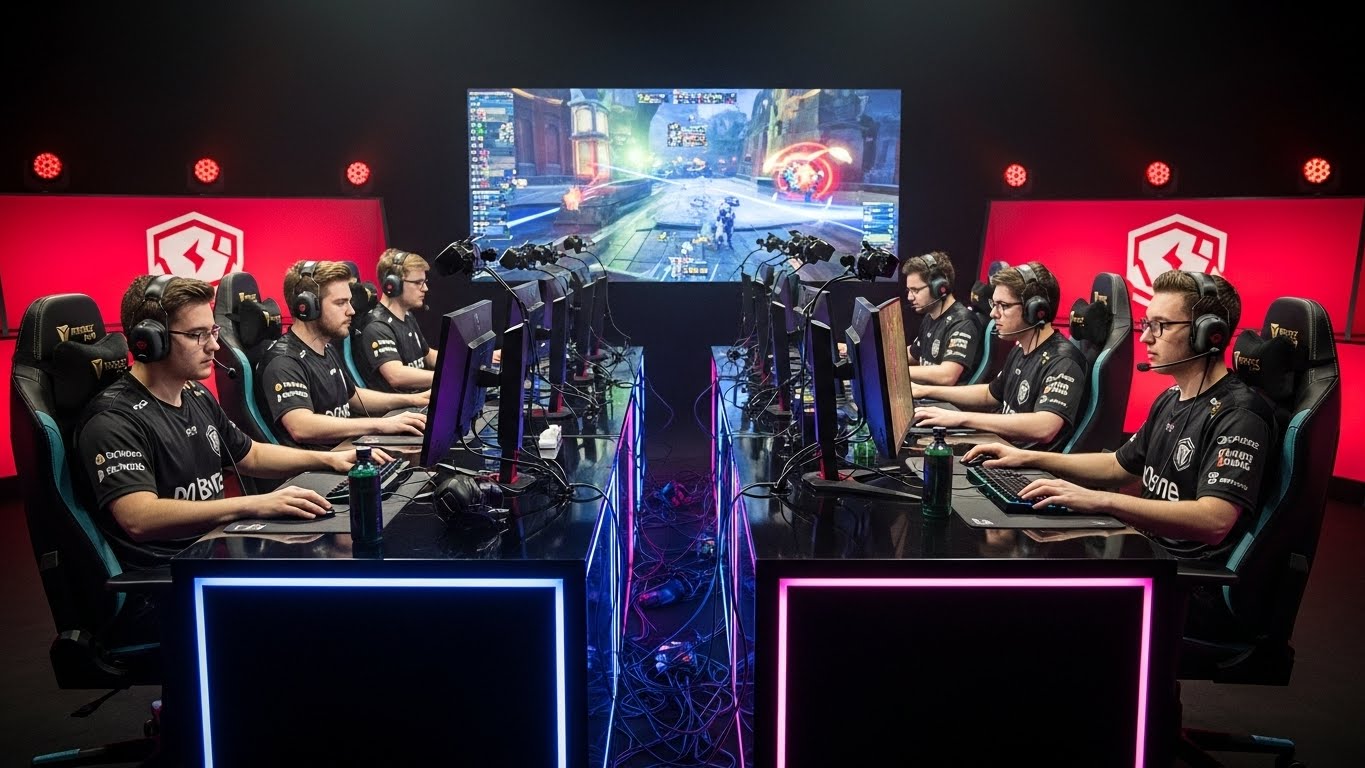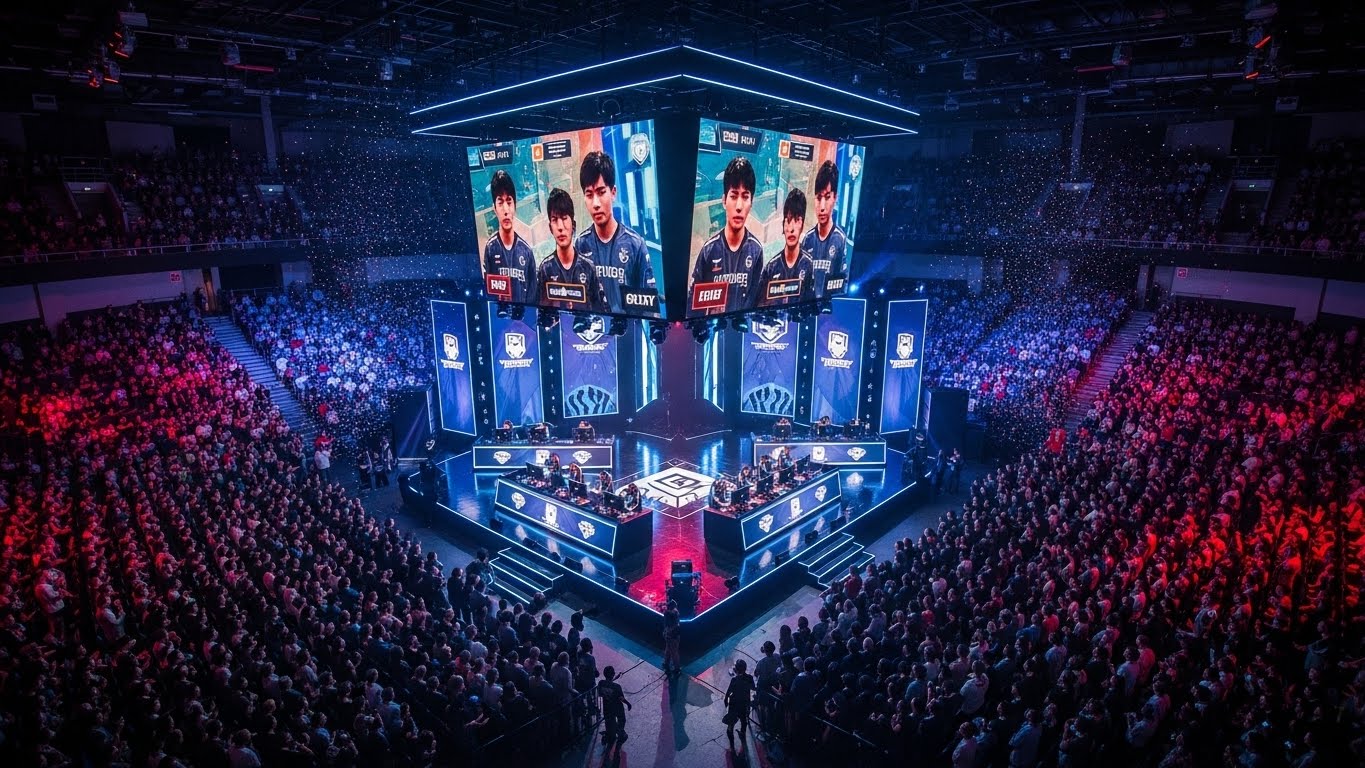Esports has rapidly transformed from a niche hobby into a global phenomenon. What began as casual gaming competitions in living rooms and local arcades has evolved into a professional industry attracting millions of viewers, enormous prize pools, and corporate sponsorships. Today, esports is not just a pastime; it is a legitimate career path for players, a booming entertainment sector, and a cultural force influencing the way people interact with games and each other. In this blog, we will explore the rise of esports, its economic impact, its cultural significance, and how it is reshaping the concept of competitive sports in the modern era.
The Origins of Esports
Competitive gaming has a surprisingly long history. The concept of playing video games against others dates back to the early 1970s when arcade competitions became popular. One of the earliest recorded gaming competitions took place in 1972 at Stanford University for the game Spacewar, drawing attention to the idea that games could be more than casual entertainment. The 1980s saw the rise of arcade tournaments and home console competitions, while the 1990s introduced online multiplayer games that allowed players to compete across cities and even countries. Titles like StarCraft, Quake, and Counter-Strike became cornerstones of competitive gaming, laying the groundwork for what we now recognize as esports. These early developments proved that competitive gaming could engage audiences and foster a dedicated community.
The Rise of Professional Esports
The 2000s marked the transition of esports from hobbyist competitions to professional leagues. Organizations began recruiting skilled players to compete in structured tournaments, often televised or streamed online. South Korea became the epicenter of esports during this period, particularly with the popularity of StarCraft, which attracted massive audiences both online and in stadiums. Professional players began earning salaries, sponsorships, and fan followings, making gaming a legitimate career. Over the years, esports expanded to include games across multiple genres, including first-person shooters, multiplayer online battle arenas, fighting games, and sports simulations. The professionalization of esports brought legitimacy, creating a framework that mirrors traditional sports with teams, coaches, analysts, and structured tournaments.
The Global Esports Industry
The esports industry has grown into a multi-billion-dollar enterprise, with its reach spanning every corner of the globe. Large-scale tournaments such as the League of Legends World Championship, Dota 2’s The International, and the Fortnite World Cup draw millions of viewers worldwide, rivaling the audiences of traditional sports events. Revenue comes from multiple streams, including advertising, sponsorships, ticket sales, merchandise, and media rights. Major brands recognize the power of esports to reach younger demographics, and this has fueled corporate investment. The global nature of esports means fans and players are connected regardless of geography, creating a truly international community centered on competition, skill, and entertainment.
The Role of Streaming Platforms
Streaming platforms have been instrumental in esports’ rise. Websites and apps that allow players to broadcast their gameplay live have transformed esports into a spectator sport. Platforms such as Twitch and YouTube Gaming enable fans to watch professional matches, follow their favorite players, and engage with communities in real time. This interactive element differentiates esports from traditional sports, as viewers can participate through live chats, polls, and even influencing content in certain games. Streaming has not only expanded esports’ reach but has also created new opportunities for content creators, commentators, and influencers, making the ecosystem more diverse and dynamic.
The Appeal of Esports
The growing popularity of esports can be attributed to its unique appeal. Unlike traditional sports, esports offers an accessible and inclusive experience. Anyone with a computer or console can potentially compete, and games provide opportunities for both casual and professional engagement. The thrill of watching highly skilled players execute complex strategies, make split-second decisions, and demonstrate precision and reflexes resonates with audiences worldwide. Moreover, esports thrives on community. Fans form teams, follow tournaments, and create content, fostering a sense of belonging and shared passion. This combination of skill, strategy, and social engagement is a key reason esports has captivated millions.
Esports and Technology
Technology is at the heart of esports. The rise of high-speed internet, powerful gaming hardware, and sophisticated software has made competitive gaming possible on a massive scale. Innovations like virtual reality, augmented reality, and artificial intelligence are pushing esports into new dimensions, enhancing both gameplay and spectator experience. Analytics tools allow teams to study opponents, refine strategies, and track performance metrics in ways unimaginable just a decade ago. Meanwhile, advances in broadcasting technology have made it possible to deliver high-quality live streams to millions of viewers simultaneously. Esports is as much about innovation and technical expertise as it is about skillful play, highlighting the synergy between gaming and technology in shaping modern entertainment.
Esports as a Career
For many players, esports represents a viable and lucrative career path. Professional gamers earn salaries, tournament winnings, and sponsorships, sometimes rivaling athletes in traditional sports. Beyond playing, there are numerous opportunities in coaching, game analysis, content creation, broadcasting, event management, and marketing. The esports ecosystem supports an array of careers that extend far beyond the game itself, offering young people alternative career paths in fields they are passionate about. Moreover, educational institutions are beginning to recognize esports programs, offering scholarships, training facilities, and academic courses that combine gaming with business, technology, and media studies.
Health and Esports
Contrary to some misconceptions, professional gaming demands physical and mental discipline. Players maintain strict training routines to enhance reflexes, endurance, and concentration. Mental health, teamwork, and communication skills are crucial for success. Many teams employ sports psychologists, nutritionists, and physical trainers to optimize performance. While prolonged gaming carries risks if not balanced, the professionalization of esports has created awareness around healthy habits, stress management, and physical fitness. Like traditional sports, success in esports requires preparation, strategy, and resilience, making it a demanding but rewarding pursuit.
Cultural Impact of Esports
Esports has not only influenced gaming culture but has also become a cultural phenomenon in its own right. It has fostered a new generation of celebrities, known as esports athletes, who enjoy fan followings comparable to movie stars or traditional athletes. Fashion, music, and entertainment industries intersect with esports, creating cross-cultural collaborations. Major tournaments are celebrated as global events, complete with fan merchandise, media coverage, and live performances. Esports also challenges traditional notions of sports, inclusivity, and competition, promoting diversity and innovation in ways that resonate with younger generations who value creativity and community engagement.
The Future of Esports
The future of esports promises continued growth and innovation. As technology advances, esports will likely become more immersive and interactive. Virtual reality competitions, AI-assisted coaching, and real-time analytics may redefine how games are played and watched. Integration with educational platforms could introduce esports to younger audiences in structured learning environments, while global expansion will continue to connect players and fans across cultures. The line between traditional sports and esports will blur further, with potential collaborations and crossover events increasing visibility and legitimacy. The future of esports is not just about games—it is about creating experiences, communities, and opportunities on an unprecedented scale.
Conclusion
Esports has evolved from a niche pastime into a global entertainment powerhouse. It has transformed the way people play, watch, and engage with games, creating a thriving industry supported by technology, media, and passionate communities. With professional players, massive tournaments, global audiences, and career opportunities, esports is shaping a new cultural landscape that rivals traditional sports in influence and excitement. Beyond competition, esports fosters community, innovation, and creativity, making it a driving force in modern entertainment. As the industry continues to expand, one thing is clear: esports is more than a game. It is a revolution redefining the future of competitive entertainment.



